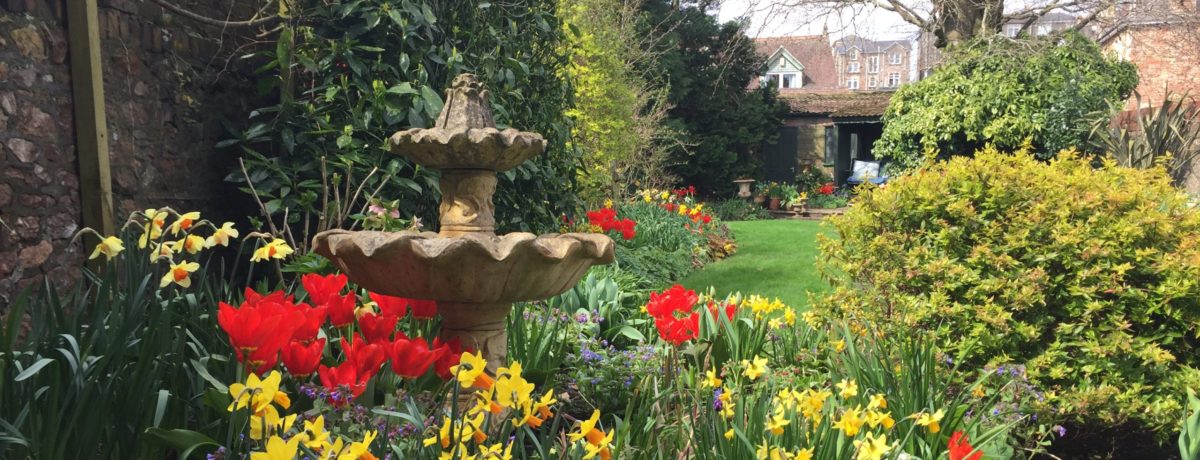Feest Isolation Days – 23 October
Season of mists and mellow fruitfulness,
Close bosom-friend of the maturing sun;
Conspiring with him how to load and bless
With fruit the vines that round the thatch-eves run;
To bend with apples the moss’d cottage-trees,
And fill all fruit with ripeness to the core;
John Keats 1819
Our week in Exton on Exmoor was truly magical. It was certainly the season of mists and mellow fruitfulness. The Autumn colours were soft and warm and subtle, every morning there were mists in the little valleys folded into the hills we could see through our windows, we ate figs from the tree by the front door, and watched apples ripen on the trees at the back – and ate them. We walked by the coast, over moorland, by rivers and streams, through woods and fields. The corn was high, the leaves golden and the low slanting sunlight produced long shadows and amazing colours. This year’s lambs were grown, with inquisitive black faces, the pheasants had been released from their captivity and strolled around everywhere, beautiful birds came to the garden for food. I do not think I have ever enjoyed Autumn in England so much.



Perhaps the pleasure was partly from escaping – Covid seemed a very remote idea from our little hamlet nestled in the hills. There was a sense of time and permanence. The little church was nearly 800 years old, the hills and rivers felt unchanged over centuries, for all the modern techniques in farming the seasonal rhythms are the same as centuries ago. We were in a place that had seen the black death, the hundred years war, later plagues, Cromwell and revolution, smallpox, the Great War – and still the rhythms just continued, Autumn follows Summer follows Spring (and the fish were still biting!). Winter comes but there will be Spring again: it was all very reassuring and comforting.

Keats was only 24 when he wrote this poem. He was already qualified to practice medicine, and had just given up training in surgery to concentrate on poetry. He was not from the elite, his father was a hostler, then innkeeper, he grew up in North London, the family made enough money to send him to school. He was very young when his mother died of tuberculosis, and his father from falling from a horse. He did not live long, like the rest of the family he was afflicted with TB. He went to Rome for a few months for a warmer climate, and died there aged 25. Yet, in his short life he wrote poetry that influenced English poets for over a century and had a huge influence far beyond. Borges stated that his first encounter with Keats’ work was a great experience that he felt all of his life.
In many ways I think his Ode to Autumn is an essay about old age, but could he have known that? He died so young, too young to understand. And yet….The third verse begins:
Where are the songs of spring? Ay, Where are they?
Think not of them, thou hast thy music too,—
This is so true from the perspective of seventy something. I can remember the songs of spring, the youthful passions and ambitions, but they are memories. This is not sad, because now I have “thy music too”. There are so many deep pleasures in life, which can be enjoyed without the urgency of ambition, work, striving to achieve. Music, literature, the garden, walking, friends, cooking, eating, travel (when we can again), (and of course fishing!) can all be enjoyed at leisure, books can be read in large chunks, there is time to sit and enjoy without the need to move on immediately to the next thing. We are lucky, Kathy and I have so much fun together, still love each others company, and we have the time to do it. The only urgency is that we have to acknowledge that our time is running out, but that is all the more reason to enjoy the now.
We have, and have had, time – imagine being a mayfly. They live for a day, some for only a few minutes, it gives a new meaning to one of the overused phrases I love to hate –

Stay safe,
Terry
